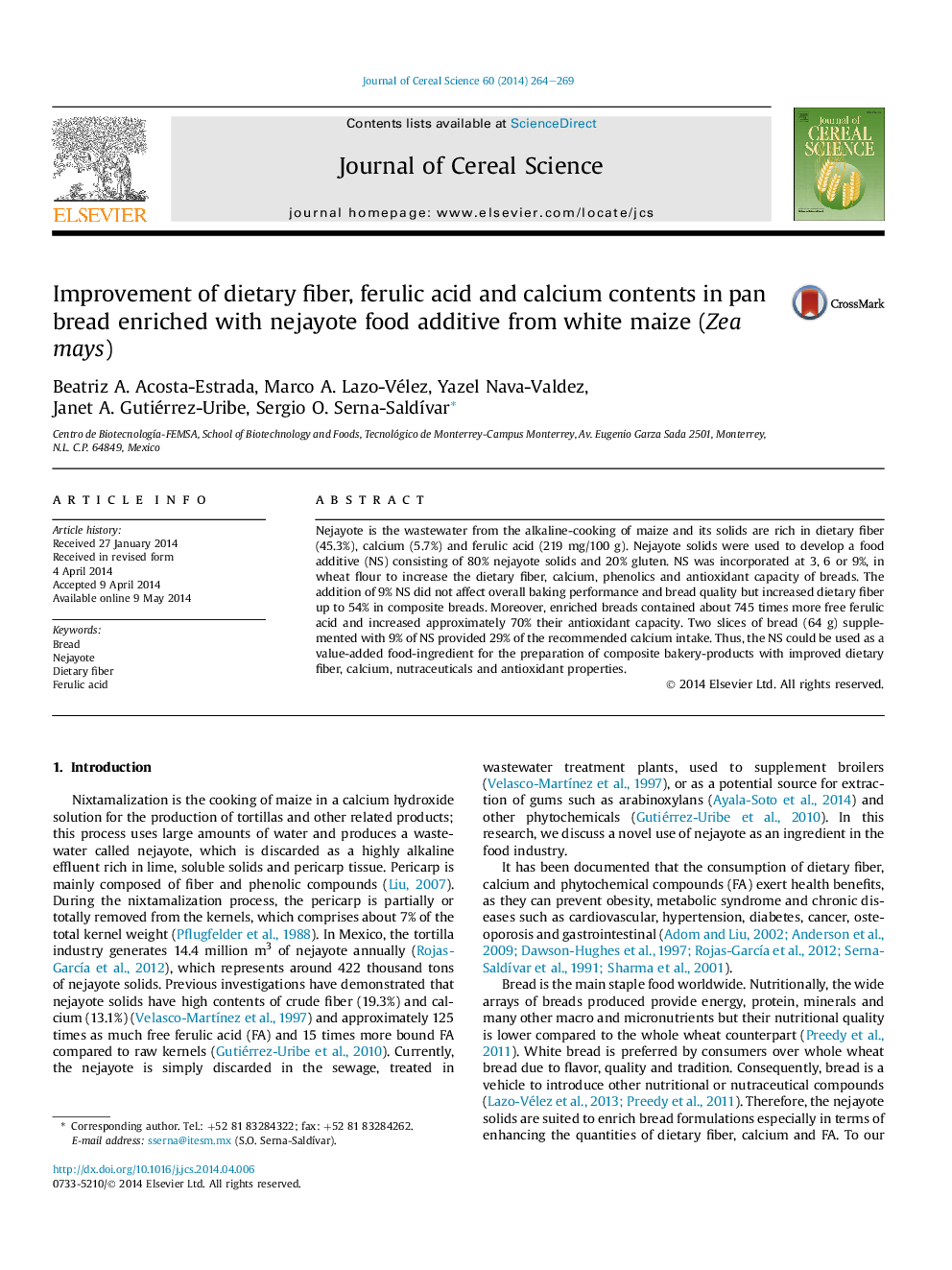| Article ID | Journal | Published Year | Pages | File Type |
|---|---|---|---|---|
| 4515815 | Journal of Cereal Science | 2014 | 6 Pages |
•Composite flours containing up to 9% nejayote food additive yielded good quality breads.•Breads with nejayote solids contained higher fiber, calcium and antioxidants.•Enriched breads contained 745 times more ferulic and 70% higher antioxidant capacity.•The addition of nejayote solids increased dietary fiber 54% in composite breads.
Nejayote is the wastewater from the alkaline-cooking of maize and its solids are rich in dietary fiber (45.3%), calcium (5.7%) and ferulic acid (219 mg/100 g). Nejayote solids were used to develop a food additive (NS) consisting of 80% nejayote solids and 20% gluten. NS was incorporated at 3, 6 or 9%, in wheat flour to increase the dietary fiber, calcium, phenolics and antioxidant capacity of breads. The addition of 9% NS did not affect overall baking performance and bread quality but increased dietary fiber up to 54% in composite breads. Moreover, enriched breads contained about 745 times more free ferulic acid and increased approximately 70% their antioxidant capacity. Two slices of bread (64 g) supplemented with 9% of NS provided 29% of the recommended calcium intake. Thus, the NS could be used as a value-added food-ingredient for the preparation of composite bakery-products with improved dietary fiber, calcium, nutraceuticals and antioxidant properties.
